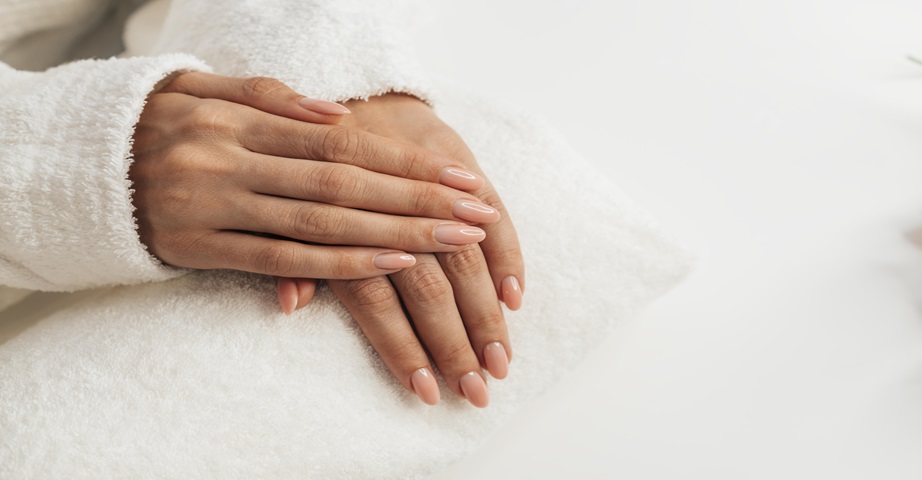Biotin - properties, sources, use

Biotin is a water-soluble vitamin that can positively affect the functioning of the human body. The compound can positively affect the appearance of skin, hair and nails, and what's more, it can support the work of the nervous system and support the synthesis of prothrombin. It is a substance commonly found in food that can be delivered to the body also in the form of dietary supplements. What is biotin? What is biotin in? How much biotin should be delivered to the body per day? What are the properties of biotin?
Biotin - what is it?
Biotin, also called vitamin B7 or vitamin H, is a water-soluble compound classified as a B vitamin. It is a substance necessary for the proper functioning of the human body, which plays the role of coenzyme in numerous processes occurring in the body. It is a micronutrient whose excessive amounts are not accumulated in the human body, but are excreted in the urine.
Biotin - where does it occur? Biotin - source
Biotin is a compound commonly found in foods that can be found in both plant-based foods and animals origin foods. The valuable sources of biotin are, among others:
- offal, primarily beef liver,
- beer yeast,
- fish, such as salmon,
- eggs,
- nuts, such as peanuts,
- seeds, including sunflower seeds,
- meat,
- milk,
- some vegetables, such as carrots, spinach or tomatoes.
The content of biotin in food can vary depending on the variety of plant and animal breed, season, method of cultivation or breeding, as well as food processing techniques. It is also worth knowing that in small amounts, vitamin B7 can be produced by bacteria living in the human digestive tract.
Recommended dietary supplements with biotin
Biotin - for what? Biotin - properties
Biotin is a compound necessary for the proper functioning of the human body, which contributes to the maintenance of normal energy metabolism, and also supports the maintenance of optimal macronutrient metabolism. It is a component involved in many enzymatic reactions, which can be involved in the synthesis of fatty acids, as well as in the metabolism of leucine or in the process of gluconeogenesis and in the Krebs cycle.
Vitamin B7 supports the proper functioning of the nervous system and helps maintain normal psychological functions. It is the substance that also supports the maintenance of optimal condition of mucous membranes, as well as supports the maintenance of good condition of hair, nails and skin. According to the current state of knowledge, the ingredient can strengthen brittle nails, positively affecting the thickness of the nail plate, and what's more, it can moisturize and smooth the skin, improving its overall appearance. Adequate levels of vitamin H in the body can prevent flaking of the skin, and biotin for hair can reduce the risk of baldness and reduce hair loss.
Vitamin B7 may support the process of prothrombin synthesis, which is a factor regulating blood clotting. Preliminary scientific research also suggests that biotin may contribute to the improvement of the lipid profile, including lowering the level of triglycerides in the body. The available analyses, focusing on simultaneous supplementation of biotin and chromium, inform that the ingredients may cause a decrease in LDL cholesterol and an increase in HDL cholesterol. Moreover, it is assumed that vitamin H may support the proper functioning of the immune system, including supporting the production of antibodies. However, further research is still needed to confirm the positive effect of biotin in this area.
Requirements for biotin - how much biotin per day should be delivered to the body?
According to the Nutrition Standards developed by the Institute of Food and Nutrition, the need for biotin at the level of sufficient intake (AI) among adults is 30 ug per day. Among infants and children up to 9 years of age, the supply of vitamin H should be 4-20 ug each day, depending on age. In turn, after the age of 10, the consumption of the compound should be at least 25 ug per day. Increased demand for biotin can be observed among women during lactation - then a minimum of 35 ug of vitamin B7 per day should be supplied to the body.

Biotin deficiency in the body
Biotin deficiencies are a rare phenomenon, because the compound is commonly found in food products included in the daily human diet. Low levels of vitamin B7 in the body may be the result of malabsorption syndrome, as well as the use of a poorly balanced menu, rich in avidin, limiting the absorption of biotin in the body. Insufficient micronutrient supply may also apply to people with genetic deficiency of biotinidase, an enzyme that enables proper metabolism of biotin.
What are the symptoms of biotin deficiency? Low levels of water-soluble vitamin can cause, among others:
- excessive hair loss,
- brittle nails,
- desquamating of the skin,
- rash,
- loss of appetite,
- nausea and vomiting.
Excess biotin in the body
Biotin is a water-soluble vitamin, the excessive amounts of which are removed from the body with urine or sweat. Thus, excessive supply of vitamin B7 with daily food seems to be an unlikely phenomenon. However, improper use of dietary supplements considered as the source of the ingredient may contribute to too high intake of vitamin H - then can be observed in the occurrence of undesirable symptoms, such as nausea, vomiting, problems with falling asleep, increased thirst or excessive urination.
Although biotin is considered a safe compound, existing reports suggest that a high intake of vitamin B7 may falsify the results of laboratory tests. It seems that the excess micronutrient may affect the level of thyroid hormones, as well as the concentration of vitamin D in the body.
Vitamin B7 supplementation - how to use biotin?
Biotin is a compound found in food, which can also be supplied to the body in the form of dietary supplements. Preparations containing vitamin B7 may be helpful among people struggling with biotin deficiency, as well as among those who are distinguished by increased requirements for the compound.
On the market can be found biotin in the form of one-component preparations, as well as, as an element of complex products - then the compound can be found in the company of other B vitamins, as well as zinc, chromium or selenium. Moreover, vitamin H is available in various forms - among the assortment of stores with dietary supplements can be found biotin in tablets, biotin in drops or in the form of lozenges. However, the selection of the right preparation is a matter of individual preferences and consumer needs. However, it is important to remember that dietary supplements containing biotin should be used in accordance with the manufacturer's recommendation.
Biotin - effects
When can you see the results of vitamin B7 supplementation? The duration of action of the compound may depend on the specific product, its manufacturer, and the presence of additional ingredients in the preparation. It is widely recognized that in order to observe the beneficial effects of biotin supplementation, should be patient and regularly take the preparation for about three months.

Biotin - side effects
Biotin is considered a safe compound. The substance supplied to the body with food does not contribute to the occurrence of undesirable side effects. In turn, excessive supply of the compound in the form of dietary supplements can cause nausea and vomiting, and can also contribute to increased thirst, problems with falling asleep and excessive urination.
Biotin - contraindications
Vitamin B7 can be successfully used by almost all consumers, among whom was found the need for supplementation with the compound. However, caution when taking biotin should be maintained by people who provide the body with antiepileptic drugs and antibiotics that can reduce the level of water-soluble vitamin in the body.

